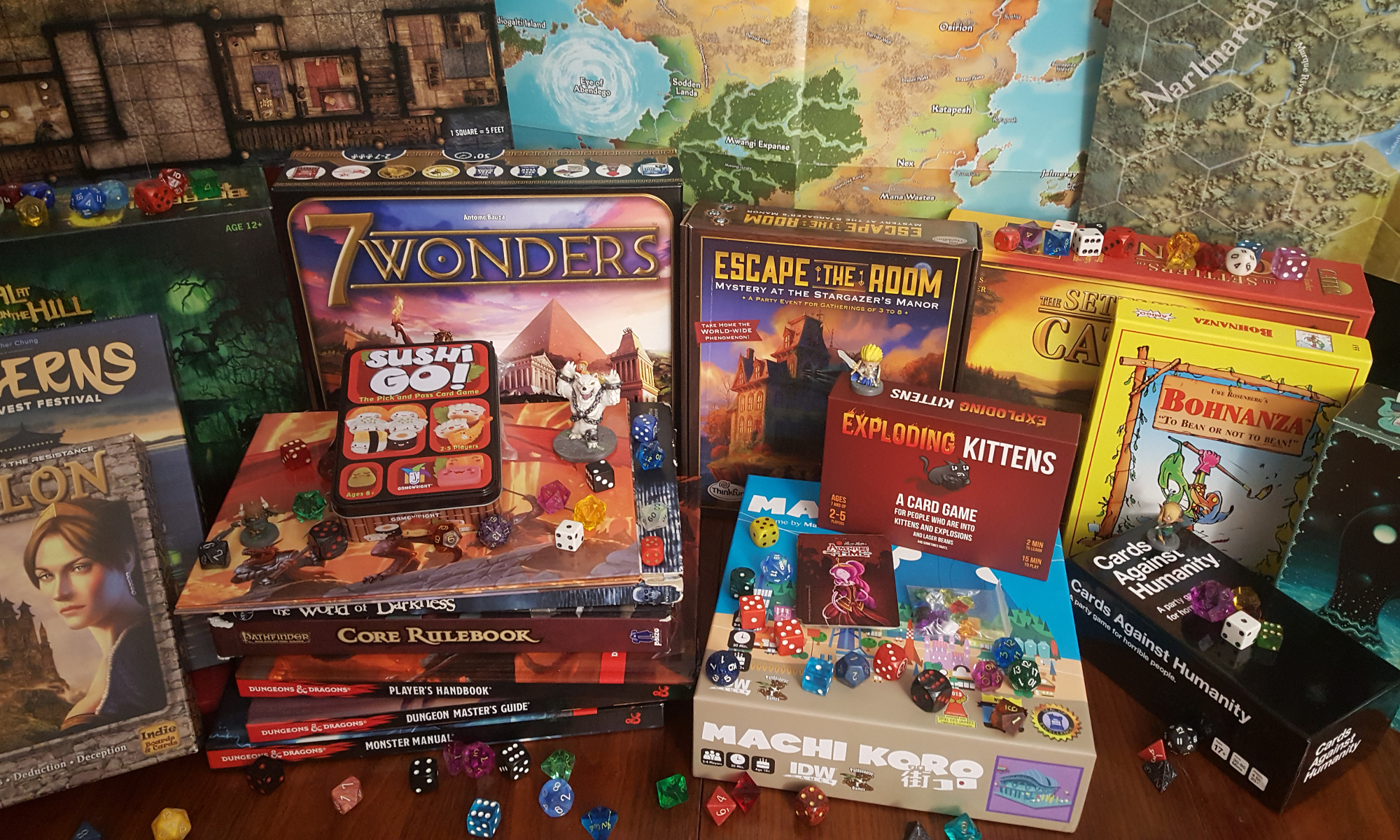Today on Save Vs. Rant, we present five more considerations vital to the success of any DM, including a bit of advice on keeping your game portable. We call it DMing 102!
Our DMing 101 podcast contained 10 points we felt were important to instill in the rookie DM. A number of the points were made based on pitfalls we ourselves had faced in our games, and, likewise, our 5 points today are the result of our efforts to improve our game.
1. Know Your Venue
This may sound obvious, and maybe even a little strange. It’s generally taken as given that the default venue for any game is the home of the person running the game. However, the more you run games, the more likely you are to run into the situation where you are playing in a place not completely under your control. If that means playing in someone else’s graciously provided space, know what responsibilities that entails. If that means playing in a public venue, know how to behave at your given venue. If it’s a space shared with the general public, make certain that your activities aren’t disturbing or confusing others. Don’t be that guy.
2. Prepare Your Space
If you are at your own home, you can make preparations of your space as elaborate as would improve the experience for your players. This can mean things like mood lighting and sound (Syrinscape provides awesome tools for auditory immersion), but more practically, it can mean simply being aware of your space constraints and being certain that every player has enough space for their needs and that space (always a precious and limited commodity) is used well.
3. Personalize the Game
Like many ambitious young roleplayers back in the bad old days before the massive internet supercommunities of gamers and the OGL, nearly all my first experiences with running a game were original material set in an original world. That made it easy for me to consider my players and their input when creating the ongoing story of the setting. Eventually, however, I began to see that there was a lot of brilliant material out there that I wanted to be able to, in a sense, enjoy alongside my players. Maybe I’ll examine this a bit more in a future episode – How I Stopped Worrying and Learned to Stop Worrying and Love the Published Module.
In any case, one thing I’ve learned, though, is that while a well-polished module can bring the flare of a professional writer to your gaming table, it is still the responsibility of the DM to breathe life into that module and to make the story conform to their group. There are many simple ways to do this, one of the simplest being to tie NPCs within the adventure to the backstories of the players. This can make them keystone characters whose destinies are tied to the PC, or simply mean that they’re part of the same club or share the same niche arcane interest. Anything that ties them into the backstory in a way that both feels like something that could happen within the setting and that, more importantly, make the PC feel like someone who could happen within the setting.
4. Don’t Be Afraid to Go Off the Rails
When we talk about stories in games, two terms that are thrown around frequently are “sandbox” and “railroad.” A sandbox, in gaming, is a setting where instead of giving the player characters discrete specific missions, they have more general goals and a large expansive setting in which to explore those. The polar opposite is the railroad game, where there is a prescribed series of events, each of which should and must happen in a sequence regardless of player character input. A sandbox setting can be daunting and, at worst, may leave the players with a sort of agoraphobic paralysis regarding what direction to go.
No plan of battle survives contact with the enemy, and, more to the point, no well written campaign can hope to anticipate the PC’s schemes and machinations. The most important thing you can do as a DM is be open to having your well-crafted plans scrapped in favor of taking things in a new direction.
Don’t mistake this advice for us telling you to let your players walk all over you, provided your players have at least some awareness of the overall direction when they set out to play – if you run an Adventure that’s about exploring a largely uncharted archipelago, it’s not unreasonable to nix players who suddenly want to return to the mainland to play a game of deep political intrigue. But, if the players suddenly start to show some interest in political intrigue as your exploration game unfolds, certainly consider letting them get enmeshed in the brutal politics of bickering exploration companies.
Being open to changes in your game isn’t the same as treating your material as disposable, which is the mental block that most DMs have to overcome when weighing being flexible against running the game they had envisioned. Consider the ancient art of palette swapping from the early days of console gaming: because of the limits to memory, the same characters would be remapped with different behavior and a different color scheme, allowing the same material to be reused. In a sense this works in tabletop gaming: your players don’t know that the enemy is a generic 3rd level rogue, they just know that it’s a sneaky enemy with a propensity for trying to flank them – it could just as easily be a dastardly pirate, a dashing rogue, a corrupt town guard or a mysterious stranger. Same stat block, minimal change, maximum usable material.
5. No Man Is an Island
Remember that there is an ENORMOUS gaming community out there! Back in the 80’s and 90’s, even finding people with interest in the hobby was a rarity requiring dedicated searching. Now there aren’t merely old webrings or remote forums discussing fan material, but literally thousands of websites, podcasts, forums, wikis, blogs, vlogs and social sites dedicated to tabletop games. There are libraries worth of printed material at shops all across America.
The internet has brought people with what were once niche hobbies into contact with millions of like-minded individuals. You have the collected experience of the entire gaming world at your fingertips. Don’t forsake those incredible resources! Don’t fall into the all too common trap of thinking that by looking to others for guidance and advice you are somehow less than them. We can all stand on the shoulders of giants and be all that much better off for it, learning hard lessons from others who have been there.

